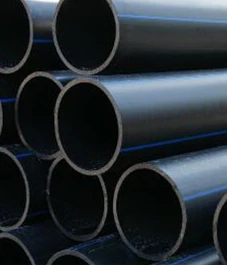វិច្ឆិកា . 30, 2024 10:08 Back to list
High-Density Polyethylene Sprinkler Pipe for Efficient Irrigation Solutions
The Benefits and Applications of HDPE Sprinkler Pipe
High-Density Polyethylene (HDPE) sprinkler pipes have become increasingly popular in agricultural irrigation systems due to their superior physical properties and cost-effectiveness. These pipes are made from a thermoplastic polymer known for its high strength-to-density ratio, making HDPE an ideal choice for various applications, particularly in water distribution.
One of the primary benefits of HDPE sprinkler pipes is their resistance to corrosion and chemicals. Unlike traditional metal pipes, which can rust and degrade over time, HDPE pipes maintain their integrity, even in harsh environmental conditions. This characteristic ensures a longer lifespan for the piping system, reducing maintenance costs and the frequency of replacements.
The Benefits and Applications of HDPE Sprinkler Pipe
HDPE sprinkler pipes are also designed to support high flow rates, providing efficient water distribution across agricultural fields or landscaped areas. This efficiency not only helps in conserving water but also ensures that crops receive the adequate moisture they need to grow. Farmers can achieve improved yield and quality of produce through effective water management, which is especially critical in areas facing water scarcity.
hdpe sprinkler pipe

The environmental impact of using HDPE pipes is another point of consideration. As a recyclable material, HDPE contributes to sustainable practices in irrigation systems. At the end of its service life, HDPE can be repurposed, thus minimizing waste and encouraging a circular economy. This eco-friendly attribute aligns with the growing demand for sustainable agricultural practices that protect natural resources.
Additionally, HDPE pipes are less prone to leaks compared to traditional systems. The fusion welding method used in HDPE piping systems creates a seamless join that significantly reduces potential leak points. This feature is crucial in agriculture, where water loss can be both costly and wasteful. By minimizing leaks, farmers can enhance efficiency, leading to better water management and usage.
In terms of installation and maintenance, HDPE sprinkler pipes excel due to their user-friendly nature. The installation procedure typically requires fewer tools and involves simpler connections, which can be performed by individuals with minimal technical knowledge. This accessibility allows for quicker setup and modification of irrigation systems, adapting to the ever-changing agricultural needs.
The adaptability of HDPE pipes extends to their wide range of applications beyond agriculture. They are used in landscaping, industrial applications, and municipal water distribution systems. Their durability and performance under various conditions make them ideal for any environment requiring reliable water management.
In conclusion, HDPE sprinkler pipes offer numerous advantages that address the challenges of modern irrigation systems. Their resistance to corrosion, flexibility, high flow capacity, and eco-friendliness make them a preferred choice for farmers and landscapers alike. As the agricultural sector continues to evolve, investing in HDPE piping can lead to sustainable practices that promote efficiency and water conservation, ultimately benefiting both the farmer and the environment. As more agricultural stakeholders recognize these advantages, HDPE sprinkler pipes are poised to play a critical role in the future of water management in agriculture.
-
High-Quality PPR Pipes and Fittings Durable ERA PPR & PVC PPR Solutions
NewsJul.08,2025
-
Black HDPE Cutting Board - Durable, Non-Porous & Food Safe HDPE Plastic Cutting Board
NewsJul.08,2025
-
High-Quality CPVC Panel Durable HDPE & PVC Panels Supplier
NewsJul.08,2025
-
Double PE Welding Rod Supplier - High Strength, Durable & Versatile Welding Solutions
NewsJul.07,2025
-
High-Quality PVC-O Pipe Supplier Durable 75mm PVC Pipe & Connections Leading PVC Pipe Company
NewsJul.07,2025
-
HDPE Drainage Pipe Supplier – Durable & Corrosion-Resistant Solutions
NewsJul.06,2025

